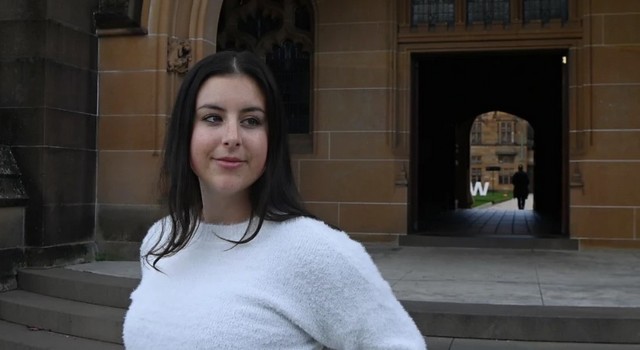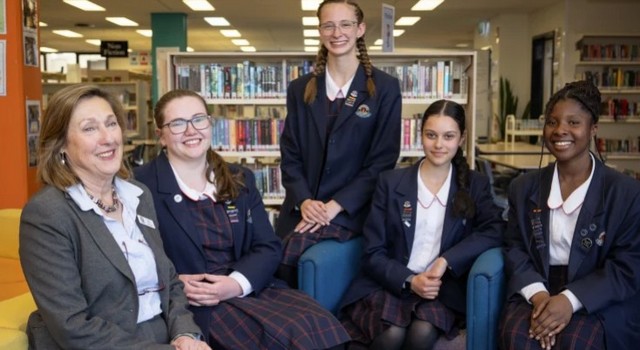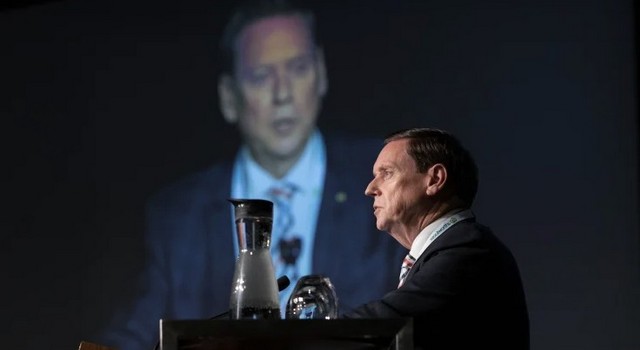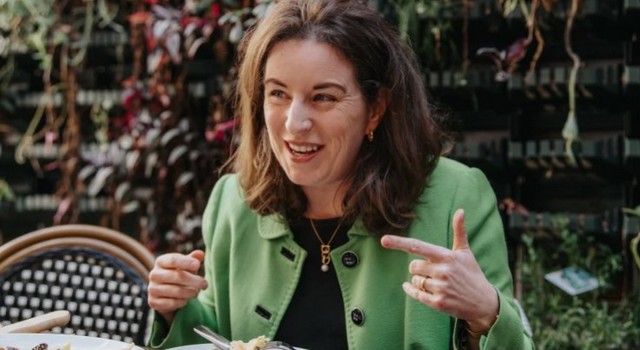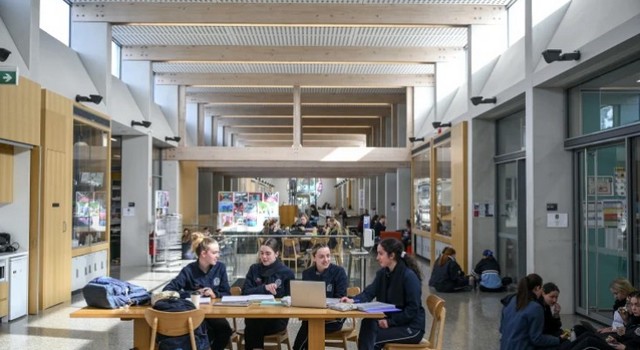Hundreds of kilometres separate the small coastal town where Maddi Eveleigh grew up from the university campus where she will eventually complete two degrees, the Sydney Morning Herald reports.
After graduating from Moruya High School on NSW’s South Coast, Eveleigh became the first in her family to go to university – scoring a spot in the University of Sydney’s prestigious science and medicine programs.
But taking her place at the sandstone institution meant some tough financial choices. A modest scholarship helped, as did savings squirrelled away from years of after-school work. “Most of the students in my course come from wealthy families, private schools. That’s the vibe in medicine.”
Universities are engines of the economy, producing the research and workforce that help grow GDP. But the idea of who universities are for needs to change, says federal Education Minister Jason Clare. More than half of all jobs in Australia will need higher education qualifications by 2050, compared with 36 per cent today, according to analysis released this week in the interim report of the landmark accord review of universities. That means about twice as many people will need to go to university – including students from low socioeconomic backgrounds and the regions who typically haven’t considered tertiary education as an option.
Yet the higher education sector itself is in crisis, propped up by international student fees after decades of government funding cuts, with a heavily casualised workforce and, increasingly, experts say, an excessively corporatised executive. Some warn Australian universities have lost sight of students in their scramble to stay competitive with elite institutions around the world.
To succeed, they’ve had to get bigger. The rise of the homogenous mega-university means institutions are becoming more like “supermarkets for credentials” at the cost of specialisation, according to RMIT University’s principal adviser in institutional research, Angel Calderon.
The days of university as a transformational experience are fading, says Xavier Dupe of the National Student Union. “And it started before COVID. Universities are pushing students through a degree factory and increasingly gearing study around the priorities of big business.”
What’s needed, everyone agrees, is a complete overhaul.
The accord’s interim report lays out five priority moves to jumpstart reforms: all Indigenous students will be guaranteed a Commonwealth-supported university place when they are accepted for study; 34 new study hubs will be established in outer suburbs and regional areas; and university governing boards will be overhauled to install more people with higher education experience. A key part of the former Coalition government’s controversial Job Ready Graduates Package – which was lashed by the accord panel as disadvantaging poorer students – will be dismantled, meaning students who fail more than 50 per cent of subjects will no longer lose their Commonwealth place. And government funding agreements, which had only been guaranteed until the end of this year, will be extended into 2025.
FULL STORY
‘Wealthy families, private schools’: Have universities forgotten who their students really are? (Sydney Morning Herald)
PHOTO
Maddi Eveleigh started working at 14 part-time in her small town to help pay for university in Sydney.CREDIT:KATE GERAGHTY

